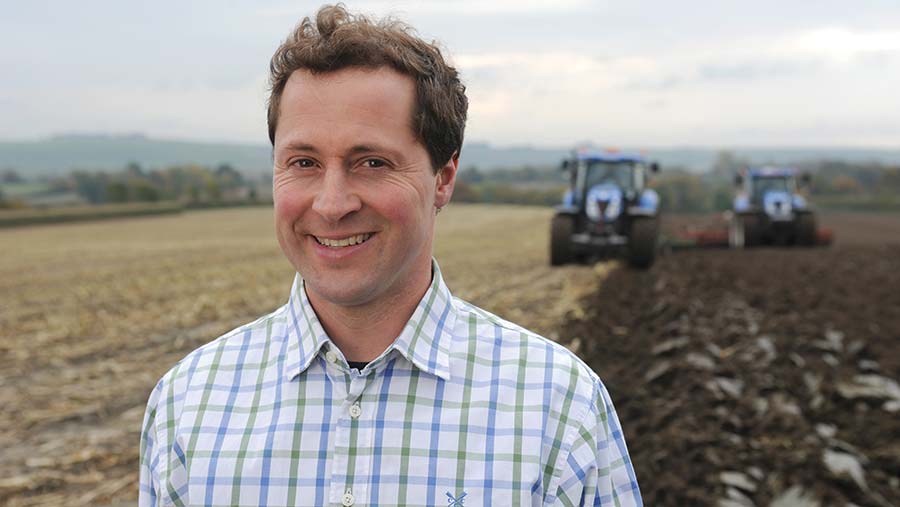Farmer Focus: Machinery outlay is cost of production nemesis
 © Hugh Nutt
© Hugh Nutt Back in October the early arrival of a Berwick swan to Slimbridge was widely reported to be a portent for the longest winter for fifty years.
Since then the weather has been exceptionally mild with stormy interludes repeating a pattern we have seen in many recent winters.
I guess the lesson to learn from this is to not use migratory birds to forecast the weather.
On the ground the backward oilseed rape has continued to grow away, but much-needed propyzamide applications have been on hold as we wait for colder conditions that never seem to come.
See also: Read more from our arable Farmer Focus writers
There is growing concern that overdeveloped cereal crops will have higher disease pressure next spring.
A recent visit to the New Holland tractor factory in Basildon was very enjoyable and informative and introduced the new T7 “heavy-duty” range.
Local machinery salesmen tell me that when farmers change tractors they always upgrade the horsepower on the replacement unit to a larger model.
The visit reminded me of comments made to me by a leading banker who said the arable sector’s biggest cost of production nemesis is not agronomic costs (which are broadly similar between farms), but poorly managed power and machinery costs.
When I came back from college the biggest tractor on our farm was 150hp and was considered powerful enough for any job.
This is now under the average size of tractor sold in the UK and smaller than all our current arable tractor fleet.
With farm profitability under more pressure than ever, it’s useful to record hp/ha figures for your own farm business, not forgetting to include hire tractors, combines, sprayers and loaders.
Then consider setting yourself future targets for this figure with an aim to lower costs of production. For the record, I calculate mine to be 1.75hp/ha.
Crop marketing has been very frustrating this season and not just in terms of prices.
Many contracts have overrun their collection dates, malting barley has been difficult to sell at all and low milling wheat proteins diluted by higher yields have incurred claims.
I fear we will still be emptying out stores next July. Wishing you all a happy and healthy new year.
David Butler farms south of Marlborough in Wiltshire in partnership with his parents and also runs a contracting company. He farms about 870ha of combinable crops alongside a 280-cow dairy herd.

